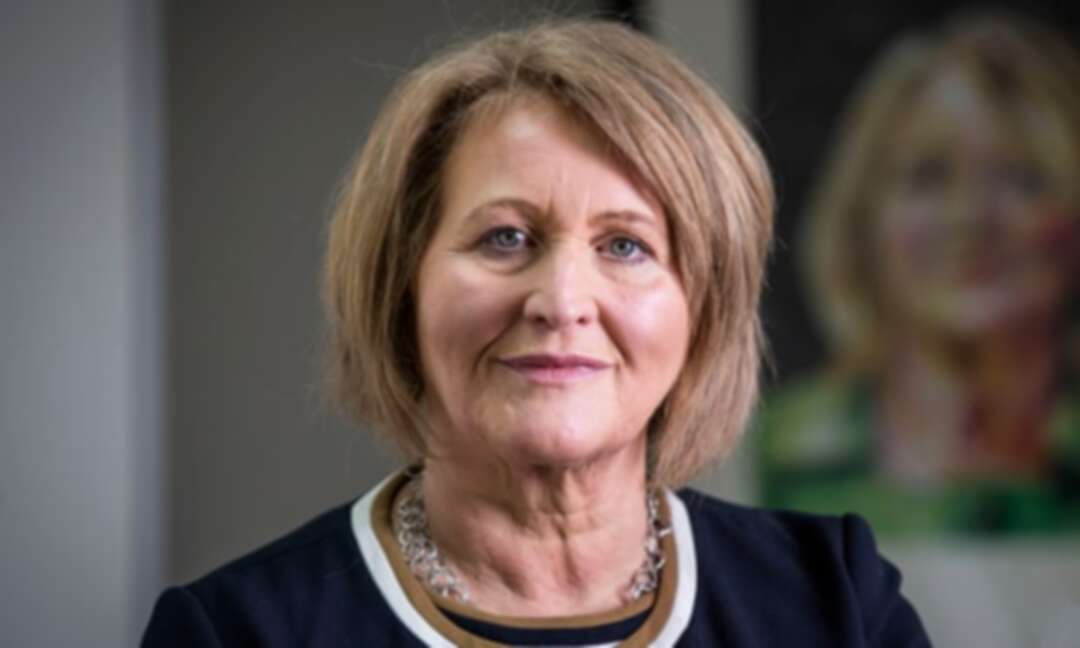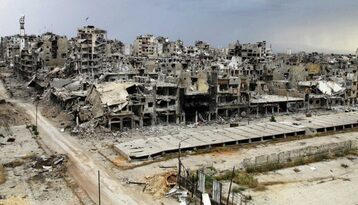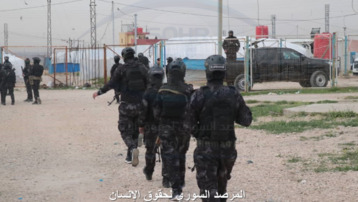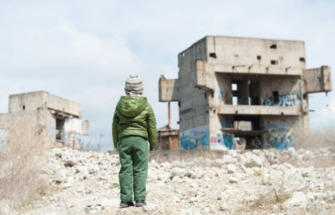-
Thousands of children sent to unregulated care homes amid Covid

Exclusive: commissioner for England says children at risk of ‘abuse or exploitation’ due to lack of council placements
Thousands of the most vulnerable children have been sent to unregulated care homes during the pandemic at a cost of millions to the taxpayer, a Guardian investigation has found.
Council bosses say they have nowhere else to put those most at risk as there are not enough places for the number of children in need, which has soared during the Covid crisis. The result is young people are placed in supported living facilities not monitored by Ofsted and therefore deemed a safety risk. One council chief described these homes as the “wild west”.
Anne Longfield, the children’s commissioner for England, said the children’s care system had been “left to slip deeper into crisis” this year and that children were now being put at risk of “abuse or exploitation” after being let down by the authorities.
Unregulated homes, often known as supported accommodation for those over 16, are not inspected by a regulator in England or Wales. They are allowed within the law because they are qualified to offer support not care, and young people housed there live semi-independently. But critics say that they are unsuitable due to the lack of checks to monitor them. Children, who are in some cases under 16 when placed in these settings, are more at risk to exploitation from abusers or drugs gangs.
A Guardian investigation based on data from 114 councils reveals that despite calls for use of these homes to be banned:
Last year, at least 8,373 children have been placed in semi-independent accommodation – during the pandemic. More than a third of these placements (2,844) were out of the local authority area, meaning children were sent miles away in an unregulated setting.
The figure, despite being an incomplete year, is higher than numbers from 2018-19, when 7,742 children were put in such accommodation. Over the last three years, more than 25,000 vulnerable young people were placed in these homes.
Speaking anonymously, council commissioners of children’s services said the system of housing vulnerable children had broken down, and they had no other options. They warned that private providers were unwilling to take the most difficult young people due to the impact on their Ofsted rating.
Councils are being forced to set up their own form of regulation on these homes, sending officers to visit them. However, the amount of checks and balances in place varies across the country.
One young person the Guardian spoke to said they were housed somewhere that turned out to be a trap house, a place where drugs are stored and distributed. They feared for their life.
There were also 93 placements last year year – up from 80 three years ago – in completely unregistered children’s homes. Any unregistered home which delivers an element of “care” as well as accommodation would be acting illegally. Unregistered provision is when a child who’s being provided with some form of care is living somewhere that is not registered with Ofsted.
Longfield said many unregulated providers were private companies making a huge profit off vulnerable children, without the checks and balances that are seen in other care settings. “Three-quarters (73%) of unregulated provision is privately run, and this part of the care sector is fast expanding. The financial opportunity presented can attract entrants to the market that know little or nothing about the care of children, with the upshot that, in some settings, children are not kept safe.”
She said coronavirus was likely to plunge more young people into care, placing “pressure on already very stretched local authority budgets”. Councils have experienced budget cuts of 29% since 2010 and in 2018-19 they overspent for children’s social care by £770m.
The overall number of the use of unregulated provision is likely to be far higher than these estimates due to the limited number of councils who responded to a freedom of information request by the Guardian. Previous research suggests the average annual cost of placements was between £9,714 a year and £364,980, meaning the total bill across all authorities is likely to run into the millions.
Longfield said the placements were, “completely unsuitable for their
She said over the last five years the system had been “left to slip deeper into crisis, seemingly unable to stop some of the most vulnerable children from falling through the gaps.”
She is calling for the government to ban under-18s in care from being placed in “unregulated accommodation, and launch the independent review into children’s social care promised in the Conservative manifesto”.
One commissioner of children’s services, speaking anonymously, said there was a growing number of children requiring residential care, driven by austerity but they face “limited supply” of where to house them. They said in London alone they needed 58-60% more beds.
Three-quarters of homes in England are now private, which means that providers can choose whether they want a child and often they do not want those with complex needs as it affects their Ofsted rating, he said, leaving councils unable to find homes for them. “You end up placing a child based on market availability, not on where is the best place for that child,” they said.
They added that because these homes did not have the oversight of Ofsted the council had started to create its own accreditation system, going out and doing checks on properties to see if they meet standards.
A government spokesperson said it had invested £40m in secure children’s homes to support councils to meet this duty, with an extra £24m announced in November last year. This, alongside their independently-led care review, would support improvements, the spokesperson said.
“Independent and semi-independent provision can be the right choice for some older children who are ready for this, but we are clear that it should not be used for younger children – that’s why we have consulted on a ban on these placements for under-16s as well as introducing national standards to improve the quality of this provision,” they said.
source: Sarah Marsh
Levant
You May Also Like
Popular Posts
Caricature
BENEFIT AGM approves 10%...
- March 27, 2025
BENEFIT, the Kingdom’s innovator and leading company in Fintech and electronic financial transactions service, held its Annual General Meeting (AGM) at the company’s headquarters in the Seef District.
During the meeting, shareholders approved all items listed on the agenda, including the ratification of the minutes of the previous AGM held on 26 March 2024. The session reviewed and approved the Board’s Annual Report on the company’s activities and financial performance for the fiscal year ended 31 December 2024, and the shareholders expressed their satisfaction with the company’s operational and financial results during the reporting period.
The meeting also reviewed the Independent External Auditor’s Report on the company’s consolidated financial statements for the year ended 31 December 2024. Subsequently, the shareholders approved the audited financial statements for the fiscal year. Based on the Board’s recommendation, the shareholders approved the distribution of a cash dividend equivalent to 10% of the paid-up share capital.
Furthermore, the shareholders endorsed the allocation of a total amount of BD 172,500 as remuneration to the members of the Board for the year ended 31 December 2024, subject to prior clearance by related authorities.
The extension of the current composition of the Board was approved, which includes ten members and one CBB observer, for a further six-month term, expiring in September 2025, pending no objection from the CBB.
The meeting reviewed and approved the Corporate Governance Report for 2024, which affirmed the company’s full compliance with the corporate governance directives issued by the CBB and other applicable regulatory frameworks. The AGM absolved the Board Members of liability for any of their actions during the year ending on 31st December 2024, in accordance with the Commercial Companies Law.
In alignment with regulatory requirements, the session approved the reappointment of Ernst & Young (EY) as the company’s External Auditors for the fiscal year 2025, covering both the parent company and its subsidiaries—Sinnad and Bahrain FinTech Bay. The Board was authorised to determine the external auditors’ professional fees, subject to approval from the CBB, and the meeting concluded with a discussion of any additional issues as per Article (207) of the Commercial Companies Law.
Speaking on the company’s performance, Mr. Mohamed Al Bastaki, Chairman BENEFIT , stated: “In terms of the financial results for 2024, I am pleased to say that the year gone by has also been proved to be a success in delivering tangible results. Growth rate for 2024 was 19 per cent. Revenue for the year was BD 17 M (US$ 45.3 Million) and net profit was 2 Million ($ 5.3 Million).
Mr. Al Bastaki also announced that the Board had formally adopted a new three-year strategic roadmap to commence in 2025. The strategy encompasses a phased international expansion, optimisation of internal operations, enhanced revenue diversification, long-term sustainability initiatives, and the advancement of innovation and digital transformation initiatives across all service lines.
“I extend my sincere appreciation to the CBB for its continued support of BENEFIT and its pivotal role in fostering a stable and progressive regulatory environment for the Kingdom’s banking and financial sector—an environment that has significantly reinforced Bahrain’s standing as a leading financial hub in the region,” said Mr. Al Bastaki. “I would also like to thank our partner banks and valued customers for their trust, and our shareholders for their ongoing encouragement. The achievements of 2024 set a strong precedent, and I am confident they will serve as a foundation for yet another successful and impactful year ahead.”
Chief Executive of BENEFIT; Mr. Abdulwahed AlJanahi commented, “The year 2024 represented another pivotal chapter in BENEFIT ’s evolution. We achieved substantial progress in advancing our digital strategy across multiple sectors, while reinforcing our long-term commitment to the development of Bahrain’s financial services and payments landscape. Throughout the year, we remained firmly aligned with our objective of delivering measurable value to our shareholders, strategic partners, and customers. At the same time, we continued to play an active role in enabling Bahrain’s digital economy by introducing innovative solutions and service enhancements that directly address market needs and future opportunities.”
Mr. AlJanahi affirmed that BENEFIT has successfully developed a robust and well-integrated payment network that connects individuals and businesses across Bahrain, accelerating the adoption of emerging technologies in the banking and financial services sector and reinforcing Bahrain’s position as a growing fintech hub, and added, “Our achievements of the past year reflect a long-term vision to establish a resilient electronic payment infrastructure that supports the Kingdom’s digital economy. Key developments in 2024 included the implementation of central authentication for open banking via BENEFIT Pay”
Mr. AlJanahi concluded by thanking the Board for its strategic direction, the company’s staff for their continued dedication, and the Central Bank of Bahrain, member banks, and shareholders for their valuable partnership and confidence in the company’s long-term vision.
opinion
Report
ads
Newsletter
Subscribe to our mailing list to get the new updates!






















